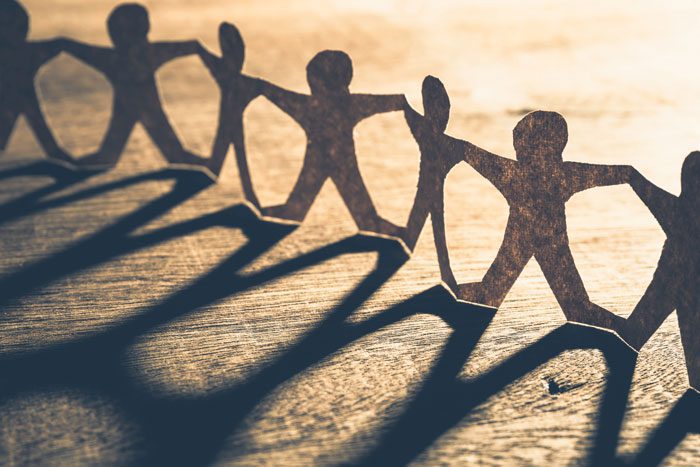 There’s strength in numbers, which is precisely why developing a strong sober support network can be a vital part of the recovery process.
There’s strength in numbers, which is precisely why developing a strong sober support network can be a vital part of the recovery process.
If you’re naturally more introverted or accustomed to handling your problems by yourself, learning to rely on others can be a bit of a challenge. However, the benefits are well worth the effort involved in stepping outside your personal comfort zone.
Benefits of a Sober Support Network
Developing a strong support system offers several benefits for your recovery. For example:
- Talking to people who understand the challenges you’re facing in recovery makes you feel less alone. This reinforces the idea that a substance use disorder is a biologically based brain disease, not the result of a lack of willpower.
- Hearing stories from people who’ve been successfully sober for an extended period of time gives you hope and inspiration for your own recovery. Change is always possible, even when you face struggles along the way.
- Social support boosts confidence and self-esteem, which can help you build a stronger sense of self free from the effects of addiction.
- Having people to accompany you to social events where alcohol or other addictive substances might be present can help lower your anxiety. If you know you have a sober buddy to back you up, avoiding tricky situations will be easier.
- People who know you well and understand your recovery history can help keep you accountable by letting you know when they see behaviors that suggest a potential for relapse.
Making Friends in Support Group Meetings
Support group meetings are often a vital part of your continuum of care following residential treatment. They are also an excellent place to make friends who understand your struggle with addiction.
Alcoholics Anonymous, Narcotics Anonymous, and other similar 12-Step groups are the most popular support groups, but they are far from the only option. If you don’t feel like these groups are working for you, other alternatives to consider include:
- SMART Recovery, which is based on REBT (Rational Emotive Behavior Therapy)
- Celebrate Recovery, which uses a Bible-based framework
- Secular Organizations for Sobriety (SOS), which focuses on personal responsibility and accountability
- Refuge Recovery, which uses Buddhist principles to promote sobriety
- Women for Sobriety, which is a women-only sober support organization
Please remember that building new friendships takes time, even when you both share the common goal of staying in recovery. Utilizing the communication skills you learned in rehab will help you build more meaningful connections. Honesty, empathy, accountability, and assertiveness are keys to any successful relationship.
Other Ways to Build Your Sober Support Network
Other members of your sober support network may include:
- Family members and existing friends who have gotten sober
- Family members and existing friends who do not struggle with substance use disorders, but are great listeners who offer sound advice
- Coworkers you feel comfortable sharing your story with
- Members of your church or place of worship you feel comfortable sharing your story with
You may also want to include people in your network who aren’t necessarily familiar with your whole recovery story, but will help you develop healthy habits that promote sobriety. For example, studies have shown regular exercise reduces the risk of relapse. A workout buddy who shares knowledge of fitness and nutrition can be helpful even if you’re not comfortable with him or her knowing all the details of your recovery journey.
Online Sources of Support
Although online interactions shouldn’t replace in-person communication, online support can prove to be helpful in many circumstances. For example, social media can help you stay in touch with friends and family who live far away and can’t meet face to face on a regular basis. You can also join online accountability groups to provide additional support in between your regular support group meetings.
Sober Grid is a social networking app that you might find particularly useful since it is especially designed for people in recovery. You can use the app to connect with people near you who are also in recovery, find rides to support meetings, or meet others who share similar hobbies or special interests.
A Word About Romantic Relationships
Although developing a sober support network is a priority during the early stages of recovery, this does not apply to dating. In fact, if you’re not currently married or in a long-term relationship, it’s best to avoid starting any new romantic relationship for at least one year. Getting sober is a major life change and you need to focus on learning what type of person you want to become before you commit to an intimate relationship.
How Waypoint Recovery Center Can Help You Build a Strong Support System
Clients who complete treatment for a substance use disorder with Waypoint Recovery Center have access to a special alumni program offering continuing support. The group meets once a week, free of charge, after completion of the IOP and/or continuing care program. To remain eligible, members must contribute to the discussion, follow group rules, and stay sober.





